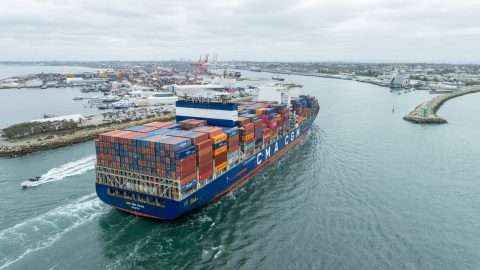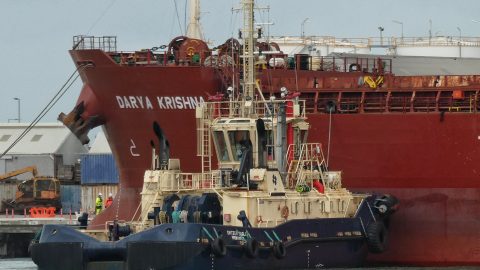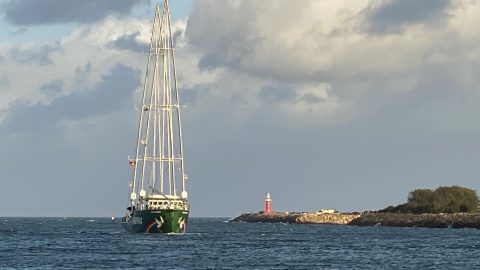The Federal Ag Department have just released the Official Public Statement of Reasons for refusing permission, on 5 February, for the re-export to Israel of livestock aboard the MV Bahijah.
Here is the Conclusion of the Statement that contains the essence of the reasons for refusal.
The full Reasons may be found here..
In short, the welfare of the livestock would have been put in jeopardy by a long voyage to Israel at that point of the saga and the uncertainty surrounding their fate on arrival in Israel.
Conclusion
I considered each of the relevant considerations and all of the evidence put before me
individually and cumulatively. I gave weight to the Israeli competent authority’s earlier indication that it would grant the import permits and its query as to whether the department could provide further information assuring animal welfare. However, I gave more weight to the concerns it expressed about the passage of time and its preference for the livestock to be offloaded and spelled before re-export. I found that there remained a risk that animal welfare incidents might appear when the livestock were moved to quarantine upon arrival in Israel, despite having been deemed fit for extended transportation.While I thought that this risk could be managed by the approved extended long-haul management plan, on balance and weighing everything before me, I considered that the risk that the Israeli competent authority may not be able to grant the import permits or otherwise accept the livestock upon arrival, outweighed the mitigation strategies that had been identified. I found that this updated information, coupled with the uncertainty of the injunction proceedings in Israel, meant that I was unable to be satisfied that import permits were likely to be issued before the livestock reached Israel.
As outlined in detail above, I considered this matter over 8 days since I sent the first notice of intention to refuse to approve the new NOI to export. This was in the face of ongoing developments and in particular the need for the exporter to develop a sound extended long-haul management plan. In my mind, the extended long-haul management plan was critical to ensuring that the livestock’s health and welfare could be adequately managed during what would have been the longest voyage the department had approved. There was also a stream of information received from the Israeli competent authority and animal welfare organisations, including developments in relation to the court proceedings in Israel.
It is regrettable that this has meant that despite my and the department’s best efforts, it was not possible to make a decision earlier. The expediency and manner of interactions with the department and other authorities can have a real and detrimental impact on a decision maker’s ability to make a timely decision in the interests of best achieving the objects of the Act. Be that as it may, on balance and weighing all of the information and evidence before me, I was unable to be satisfied that the consignment met all the requirements in subsection 8-6(3) of the Rules. I was therefore unable to approve the NOI to export.
Andrew McDonald
Acting First Assistant Secretary
Plant and Live Animal Exports, Welfare and Regulation Division8 February 2024
Ag Department further advise that the next steps for the livestock aboard the MV Bahijah are now a commercial decision for the exporter.
The department says it is working closely with the exporter to support this planning and continues to receive daily reports on the welfare of the livestock aboard the vessel and they remain in good health.
By Michael Barker, Editor, Fremantle Shipping News
WHILE YOU’RE HERE –
PLEASE HELP US TO GROW FREMANTLE SHIPPING NEWS
FSN is a reader-supported, volunteer-assisted online magazine all about Fremantle. Thanks for helping to keep FSN keeping on!
** Don’t forget to SUBSCRIBE to receive your free copy of The Weekly Edition of the Shipping News each Friday!







